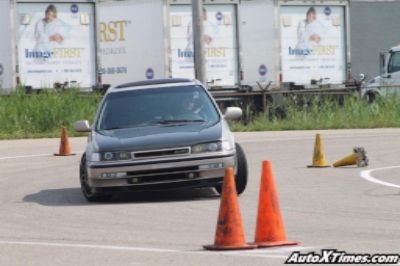My left front brake is grinding when I stop, and I've noticed I need apply more pressure to the brakes to stop the car. I took the front left wheel off, and the rotor looked like this:

I'm planning to buy new pads, and replace both the left and the right side brakes.
Do I need to clean the rotor before I replace the pads, or will the new pads wear that surface rust off?

I'm planning to buy new pads, and replace both the left and the right side brakes.
Do I need to clean the rotor before I replace the pads, or will the new pads wear that surface rust off?



Comment